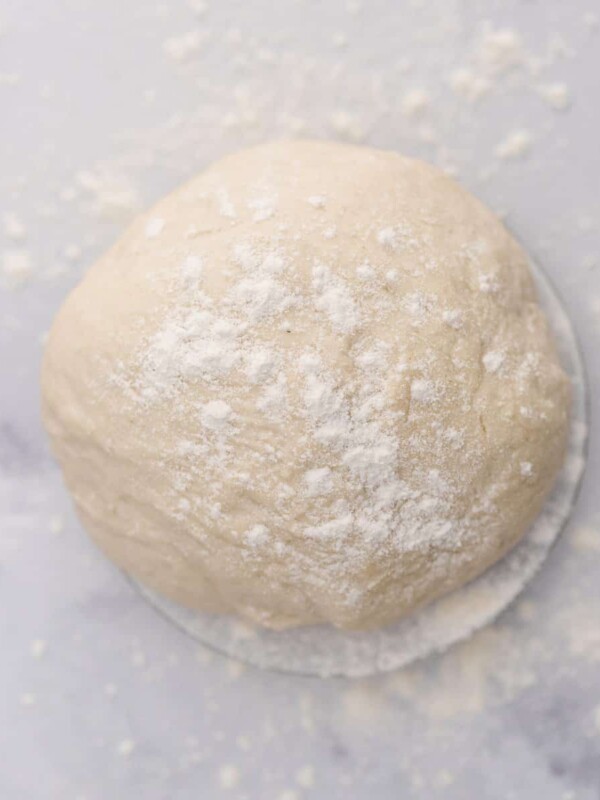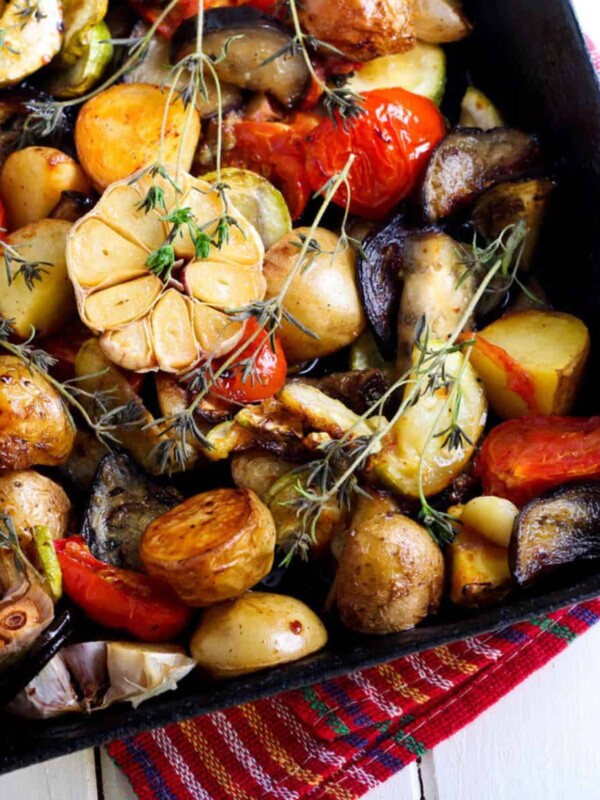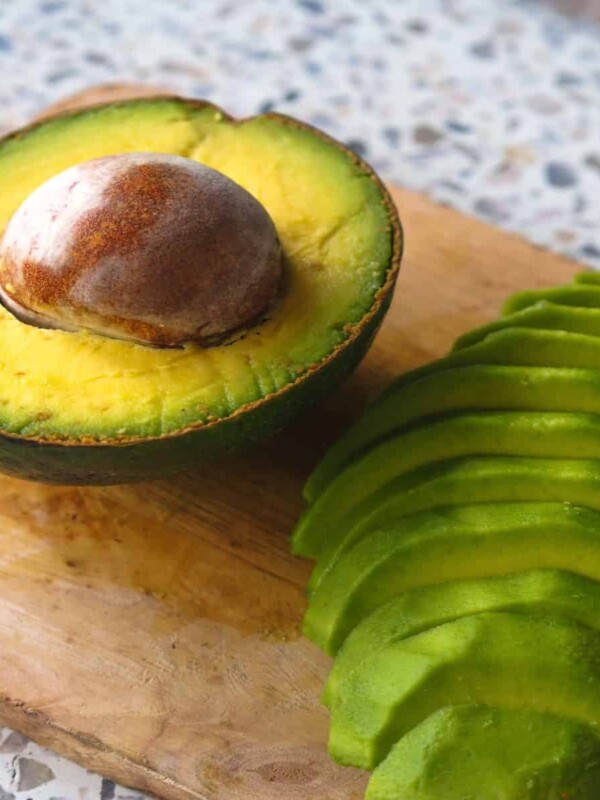This post may contain affiliate links. Please read our disclosure policy.
If you’re looking for healthier options to regular vegetable oil, here are 10 best vegetable oil substitutes to choose from. Boost your health and take your cooking to another level with these healthy oil alternatives!
Although many vegetable oils offer health benefits, they’re also high in unhealthy trans fat. Hence, let me show you which oils are the healthiest and which ones are the best for using in different types of cooking.
Every Drop Is Healthier

What’s Wrong with Vegetable Oil?
Simply, vegetable oil is often a blend of different types of oils. It is an inexpensive choice that can be used for all kinds of cooking. Also, it has a neutral flavor (sunflower oil from sunflower seeds, corn oil, soybean oil, palm oil, safflower, canola oil, and etc.).
Some contain healthy polyunsaturated and monounsaturated fats, while others have unhealthy trans fats. Also, most non-organic vegetable oils are processed with chemical solvents.
Vegetable oils are very high in linoleic acid, an omega-6 fatty acids that increase inflammation and lead to a risk of heart disease.
It’s Time to Cook Healthier

Smoke Point of Vegetable Oils
The oil smoke point is the maximum temperature at which the oil heats before it starts to smoke, burn, or break down. Refined oils have a high smoke point, while unrefined oils have low smoke points.
When oil passes its smoke point, it oxidizes and releases toxins called free radicals, which cause various illnesses and fast aging. Also, food develops a rather bitter taste when the oil burns. So it’s crucial not to cook with vegetable oil beyond its smoking point.
You Can Cook Healthy and Delicious

How to Choose Vegetable Oil Substitutes?
Not all oil substitutes are appropriate for all types of cooking and recipes. Some oils have stronger flavors than others, which may alter the taste of your food in cooking and baking.
Other oils have low heat points and can’t be used for baking or high-heat cooking. Hence it’s crucial to understand the amount of heat that vegetable oil withstands (oil smoke point) to choose a suitable substitute.
If possible, prefer to buy organic, cold-pressed, unrefined oils. Keep several healthy oils in your kitchen pantry to enjoy a variety of delicious culinary tastes and health benefits.
It’s Never Late to Start Taking Care of Your Health

How to Store Oils
The best place to store vegetable oil is in a cool and dark place. Do not store near the window and stove since light and heat can destroy the health benefits of oil.
Oil bottles should be well sealed so that the flavor and aroma will stay as longer as possible within the oil.
Olive oil and coconut do tend to solidify under refrigeration, so you might need to bring your salad dressings up to room temperature before you serve the meal.
These Oils Are Aromatic and Toothsome

Top 10 Best Vegetable Oil Substitutes
Selecting the best substitutes for vegetable oil depends on your cooking or baking style. Consider the following: whether the oil is for frying, browning, sautéing, baking, or salad dressing.
1. Avocado Oil
Refined avocado oil has a high smoke point of 500 F. This means that it’s ideal for baking, deep-frying, sautéing, grilling, and browning. It’s a popular choice for high-heat cooking!
Avocado oil is high in monounsaturated fats which are the good fats your body needs. It has a mild and subtle flavor that makes it ideal for adding to all types of dishes without affecting the food’s taste.
2. Coconut Oil
Coconut oil is solid at room temperature but liquefies around 78°F. Virgin coconut oil has a smoke point of 340-380°F and a sweet, nutty flavor. Refined coconut oil has a smoke point of up to 406°F and a relatively neutral taste. It’s perfect for sautéing and baking.
The high melting point of coconut oil is due to its high saturated fat content (90%), making it lower in harmful linoleic acid. Because of the fatty acid composition of coconut oil, it can add a crisp texture to recipes.
3. Olive Oil
Cold-pressed extra-virgin olive oil is one of the healthiest oils for vegetable oil substitutes. It has a high-monounsaturated fat composition and antioxidant properties that are very healthy for the whole body, especially heart.
Olive oil has provides a peppery, astringent, and sometimes nutty flavor to meals. It has a low smoke point of 350°F so it’s best used for salad dressings and marinades. It’s not suitable for searing or sautéing.
4. Grapeseed Oil
A by-product of winemaking, grapeseed oil is a rich source of vitamin E, antioxidants, and omega-6 polyunsaturated fats, supporting heart health.
Grapeseed oil is great vegetable oil substitute! It is flavorless and doesn’t affect the flavor or aroma of foods. Also, its smoke point is 420 degrees F and is suitable for searing and sautéing.
5. Flaxseed Oil
Flaxseed oil, also known as linseed oil, comes from the seeds of the flax plant. It’s a good source of soluble fiber. It has laxative effects and may help relieve digestive problems.
Flaxseed oil is not heat-stable. You can only use it in marinades and salad dressings. It also tastes great when drizzled over grilled vegetables or other cooked meals before serving.
6. Peanut Oil
Peanut oil is rich in vitamin E and monounsaturated fats, also its taste is very close to peanuts. Be careful if you or your close family members are allergic to peanuts.
Peanut oil has a medium-high smoke point, so this type of oil can be used in stir-frying. Also it is perfect in sauces, marinades, and salad dressings.
7. Walnut Oil
Walnuts are one of the few plant sources of omega-3 fatty acids. Walnut oil has a rich nutty flavor and it is delicious in salad dressings and no-bake dessert recipes.
8. Sesame Oil
Sesame oil is best when used in salads and no-cook dishes to preserve the essential nutrients it has. In addition, sesame paste is also great to be used in salad dressings as well as sauces.
9. Fruit Puree
As for non-oil substitutes for vegetable oil, you can easily use any fruit puree you wish. It works best as a vegetable oil substitute in baking since it adds moisture.
You can use applesauce, mashed bananas, puréed sweet potatoes, or even mashed pumpkin. Fruit puree provides extra nutrients and decreases the calorie content.
10. Greek Yogurt, Sour Cream, Plain Yogurt
Dairy products such as Greek yogurt, plain yogurt, and sour cream have animal fats and they are perfect vegetable oil substitutes. Baking will be easy to do and so much fluffy with these dairy products substituting vegetable oils.
Guilt-Free Cooking Is Possible

Cook these Healthy Recipes with Vegetable Oil Substitutes:
- Baked Stuffed Eggplant
- 10 Minute Air Fried Viral Breakfast Cookie
- Perfect White Vermicelli Rice
- Perfectly Seasoned Baked Potato Balls Recipe
- Easy Homemade Caramel Popcorn
- Crispy Crunchy Air Fryer Cauliflower
- Simple Middle Eastern Salad
- Crispy Air-Fried Sweet Potato Fries
- BEST Fattoush Salad with Dressing
- Apple Pie Roll Ups




